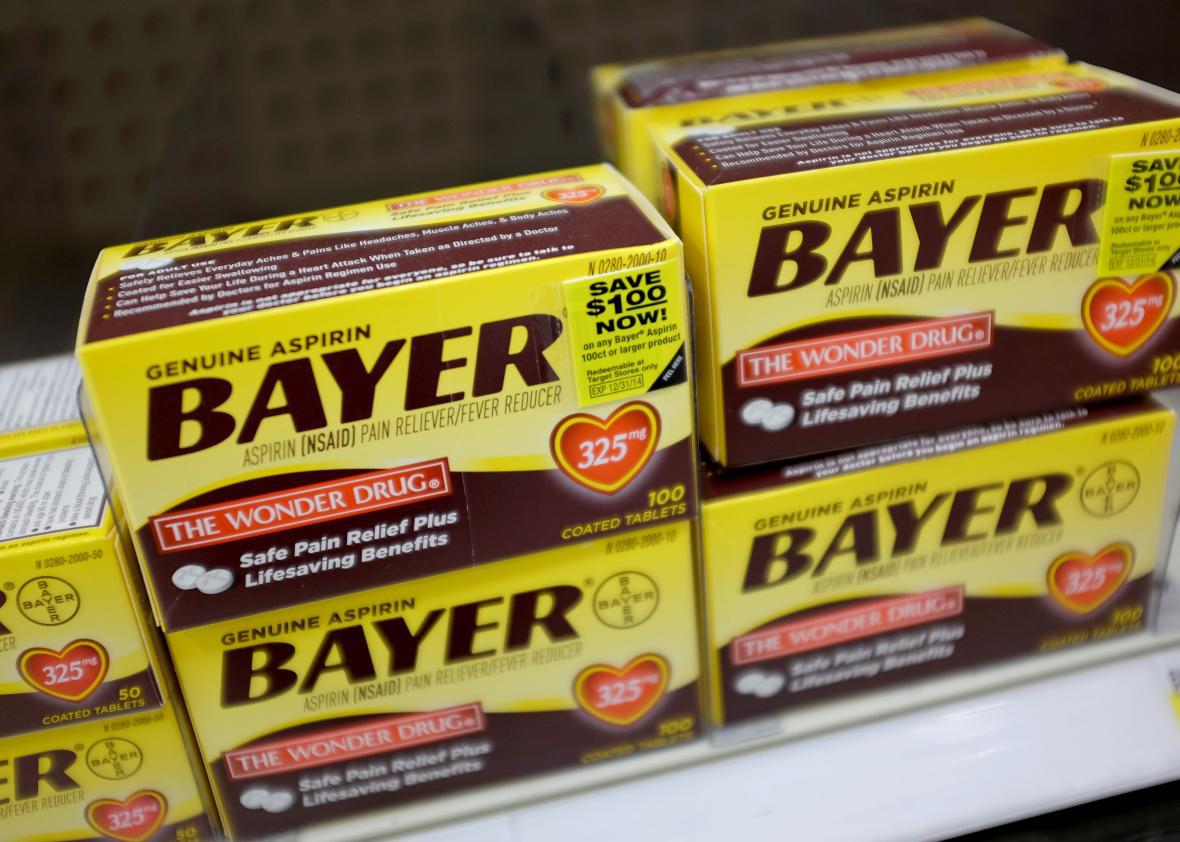Since Nov. 8, President-elect Donald Trump has claimed credit for—or been credited with—saving or creating U.S. jobs at firms as varied as Carrier, Ford, and Amazon. In Deal or Faux Deal? we analyze whether these deals are really Trump’s doing, if they’re good for America, and if they’re even deals at all.
The “Deal”: After meeting with President-elect Trump, executives at Bayer, the giant German pharmaceutical company, said Wednesday that it would add “several thousand” high-tech jobs in the U.S. and spend about $8 billion in research and development in the U.S. over the next six years. “Bayer Joins Job Parade,” blared the headline in the Wall Street Journal.
There’s a clear quid that Bayer wants for this quo. Bayer last September struck a deal to acquire U.S.-based Monsanto, the seed and pesticide giant, for about $66 billion. Because Bayer itself has a very large seed business, the deal is likely to encounter stiff scrutiny from the Federal Trade Commission and the Justice Department, whose leaders will soon report to President-elect Trump. If the deal gets killed on antitrust grounds, Bayer will have to pay Monsanto a $2 billion fee. Should it get approved, Bayer will establish itself as the world’s largest manufacturer of pesticides and seeds, and gain the opportunity to cut $1.5 billion in annual cost savings from overlapping operations.
Did Trump Make This Happen? Maybe a little. In general, companies—especially foreign companies—that make large U.S. transactions promise to make new investments and hires as they seek to gain approval. After all, everybody knows that some job cuts will be coming. One of the big purposes of a merger like this is that it will allow Bayer to take out large amounts of costs by eliminating or sharply cutting Monsanto’s overhead in the U.S. The merged entity won’t need Monsanto’s current investor-relations function, for example. and would likely take a scalpel to its central office’s ranks and geographic footprint. (After InBev acquired St. Louis–based Anheuser-Busch in 2008, it cut hundreds of jobs in St. Louis.) Until recently, however, such job cuts were held up as a positive good—for shareholders, and for the company at large. Given Trump’s propensity for calling out companies that cut jobs and general hostility to foreign firms, Bayer is clearly acting in a more sensitive manner than the typical foreign acquirer in 2010 or 2012 would have. In addition, the belief in Trump’s transactional nature—lots of people believe, with good reason, that he, or his appointees, might try to influence deal approvals based on their job impact—may have caused Bayer to emphasize job additions rather than job cuts. A betting person would have to believe that jobs announcement makes an approval more likely.
Is It Good for the Company? Yes. Bayer, facing perpetually low growth in its home markets in Europe, desperately needs growth. The purchase of Monsanto represents an opportunity to substantially increase revenues, fortify its market position in the seed business, and boost profits through cost reductions. What’s more, both Bayer—and Monsanto—already spend lots of money on research and development and hire lots of scientists and software engineers. As the Journal noted, Bayer’s “Tuesday commitment on R&D spending works out to a total of about $2.7 billion a year, which isn’t far from what the companies already spend.” It’s not like the company is committing to blow a lot of money on projects it wouldn’t have done in the normal course of events.
Is It Good for America? Unclear. Should the deal go through, it would certainly be bad news for St. Louis, which would see one of its leading corporate citizens effectively turned into a subsidiary of a German behemoth. The funds spent by the merged company on new hires and research projects (which don’t represent much of a boost from current levels) would be partially offset by the loss of jobs, decision-making authority, and status in Missouri. And other sectors of the vast and highly productive American agriculture sector might suffer. The Journal reported that many farmers are concerned that concentration in the seed industry would lead to higher prices for seeds and pesticides. Should the merger lead to higher costs for farmers, it would make food more expensive, and cut into profit margins for farmers and packaged goods companies.
Ruling: It sure looks like a real deal, though we won’t know until the government renders its judgment. But it may be one America regrets.
